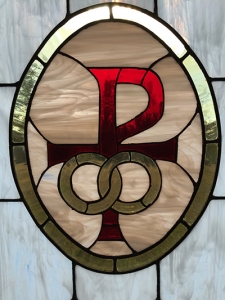The Theology of Matrimony
The matrimonial covenant, by which a man and a woman establish between themselves a partnership of the whole of life, is by its nature ordered toward the good of the spouses and the procreation and education of offspring; this covenant between baptized persons has been raised by Christ the Lord to the dignity of a sacrament. (Code of Canon Law, Canon 1055)
In the Latin Rite the celebration of marriage between two Catholic faithful normally takes place during Holy Mass, because of the connection of all the sacraments with the Paschal mystery of Christ. In the Eucharist the memorial of the New Covenant is realized, the New Covenant in which Christ has united himself forever to the Church, his beloved bride for whom he gave himself up. It is therefore fitting that the spouses should seal their consent to give themselves to each other through the offering of their own lives by uniting it to the offering of Christ for his Church made present in the Eucharistic sacrifice, and by receiving the Eucharist so that, communicating in the same Body and the same Blood of Christ, they may form but “one body” in Christ. (The Catechism of the Catholic Church, 1621)
Just as with the other sacraments of the Church, there are particular graces provided in the sacrament of matrimony. The grace proper to this sacrament is intended to perfect the couple’s love and to strengthen their indissoluble unity. By this grace they “help one another to attain holiness in their married life and in welcoming and education their children.” Christ, the source of this grace, dwells with them, gives them the strength to take up their crosses and so to follow him, to rise again after they have fallen, to forgive one another, to bear another’s burden, to be “subject to one another out of reverence for Christ,” and to love one another with supernatural, tender and fruitful love.
To Schedule a Wedding: Contact the Pastoral Office Center (770.887.9861) at least 6 months prior to the anticipated wedding date

